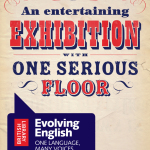
Guest post by Roy Mathias
Perhaps in Lent I should not be writing about the different ways food can make us feel good. So let me start with
Fasting. It can make you feel terrific after a couple of days, but I’m sure can have too much of good thing. Fasting is also the body’s natural response to some illnesses.
Comfort food. This is usually a childhood favourite, warm, hearty, rich, simple, and usually inexpensive; spaghetti and meatballs, Irish stew, fish and chips, pizza (my favourite), chicken tikka masala, bangers and mash, or a full English breakfast, followed apple crumble topped with ice cream if more comfort is needed .
Organic food. Of course, for most of human history,all food was of necessity organic. The industrial revolution brought chemical fertilisers and pesticides and greatly increased harvests. Organic agriculture ha recently become fashionable, but Sir Albert Howard, writing in the 1940, based on experiments started in 1910 says
“This law is true for soil, plant, animal, and man: the health of these four is one connected chain. Any weakness or defect in the health of any earlier link in the chain is carried on to the next and succeeding links, until it reaches the last, namely, man. The widespread vegetable and animal pests and diseases, which are such a bane to modern agriculture, are evidence of a great failure of health in the second (plant) and third (animal) links of the chain. The impaired health of human populations (the fourth link) in modern civilised countries is a consequence of this failure in the second and third links. This general failure in the last three links is to be attributed to failure in the first link, the soil: the undernourishment of the soil is at the root of all.”
In “Farming and Gardening for Health or Disease” he presents the remarkable example of his uninoculated oxen, fed purely organic high quality feed living on his organic farm in Pusa, Bihar (India), resisting resisting infection with foot-and-mouth disease from the cattle in neighbouring farms with which they mingled.
Surely eating organic makes us feel better?
Home grown. Our first home grown tomato of the season is ceremonially quartered and shared by the family. The taste is nothing special, but there’s pride and pleasure in the plucking.
Fair trade. Buying and eating fair trade makes us feel good as the pounds we are spend are doing good to a few farmers and are not encouraging ruthless bottom-line economics. COOP, established by the Rochdale Pioneers in 1844 (based on the Rochdale Principles that are used in different forms by co-operatives worldwide), is well known for its ethical trading and leadership in fairtrade. In a major initiative they supported over 10,000 smallholder tea farmers organise into co-operatives, and so get fair trade status and power to negotiate higher prices. Here’s a picture of a Kenyan tea plantation where some of the COOP tea comes from. In fact, you can join the revolution that was started over 150 years ago, and help out your local area and further afield.











